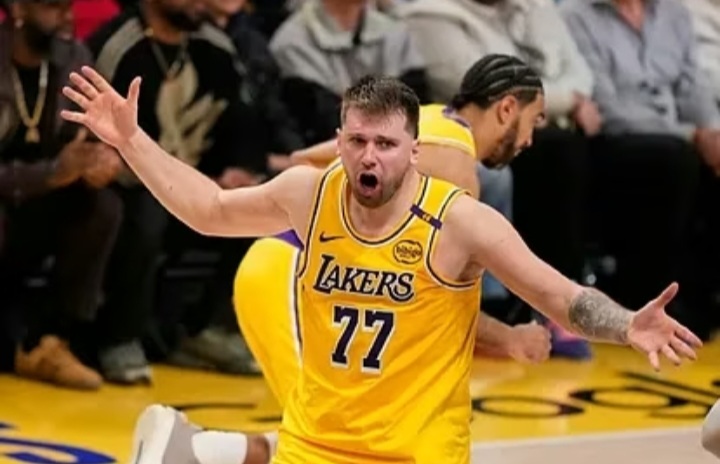This summer’s atmosphere around the Lakers feels different, tenser, and more uncertain.
The blockbuster acquisition of Luka Doncic has been dominated by one nagging question: Can Los Angeles really earn his loyalty?
As the looming deadline for a four-year, $228 million extension approaches, the spotlight turns to Rob Pelinka and whether the franchise has done enough to justify such a monumental commitment.
Understanding the backdrop is key. In February, Lakers president of basketball operations Rob Pelinka orchestrated a seismic trade, bringing Luka from Dallas in exchange for Anthony Davis.
The deal shocked the NBA. Luka himself admitted he was “shocked” when he heard, confessing that he “had to check to see if it was April 1st.”
He’d even said in Dallas that “loyalty is a big word for me,” and the abrupt move shattered what fans believed was a career-long association with the Mavericks.
That sense of betrayal still echoes, especially as Luka contemplates his future now that he can sign a massive deal.
At the same time, there are emerging concerns about Pelinka’s handling of personnel decisions, namely the departure of Dorian Finney-Smith.
Luka and Finney-Smith had formed a tight bond stretching back to Dallas.
Luka and Finney-Smith had formed a tight bond stretching back to Dallas.
That friendship carried over to L.A. expectations, so when the Lakers let Finney-Smith leave for Houston after allegedly lowballing him and Pelinka’s camp spreading doubts about his knee to other teams, alarms went off.
Finney-Smith signed a richer four-year, $53 million offer from the Rockets, while the Lakers reportedly countered with just two years, implying not only a lack of commitment but a missed chance to show loyalty to someone in Luka’s inner circle.
The entire situation has underscored a growing worry: for someone whose very professional identity rests on hard-earned trust, do the Lakers offer a safe long-term home, or just a flashy temporary one?
According to insiders, Luka may be rethinking the structure of his next deal.
While he’s eligible for a four-year, $228 million extension on August 2, he may prefer a shorter commitment, perhaps three years around $161 million, to keep future flexibility, reach a decade of service, and unlock a potential $406 million supermax later.
It’s not just about money, it’s a statement: “Here I am, but you’ve got to earn me.”
This hesitancy is rooted in more than financial calculus.
Lakers legend Magic Johnson recently noted that being a Laker brings unique pressure, that Luka must deliver physical commitment and results in L.A., not just in Dallas.
The organization has just one Western Conference Finals appearance since 2020, a track record that hardly inspires blind faith.
Concurrently, external landscape changes also play a role.
The franchise was recently purchased by Dodgers owner Mark Walter in a record $10 billion deal, the highest-priced sale in U.S. pro sports.
That shift from the Buss family era adds both financial muscle and scrutiny: Walter and fellow Guggenheim partners expect reassurance that big-dollar signings like Luka come with championship credibility.

